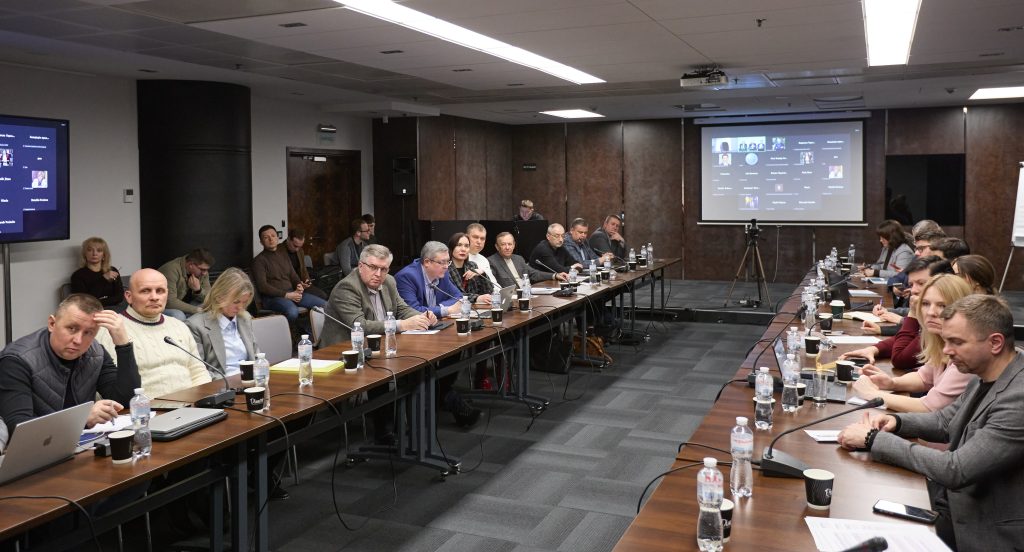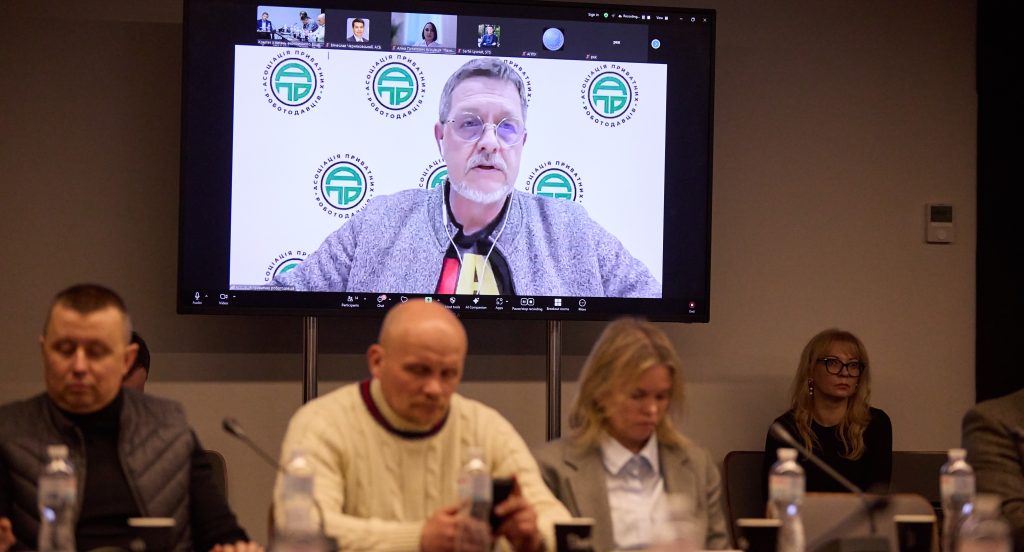The Fuel and Energy Business Association took part in the Committee Hearings on the work of SMEs, initiated by the Ukrainian Business Council (UBC) in collaboration with the Verkhovna Rada Committee on Economic Development. The hearings, titled “Priorities and Challenges for Small and Medium-Sized Businesses in 2025,” took place on March 26 and were attended by the leadership of the Economic Committee, representatives of the Tax Committee, the Business Ombudsman, the Ministry of Economy, the Ministry of Finance, and the heads of leading SME business associations from various regions of Ukraine.
During the nearly three-hour event, participants discussed the challenges facing small and medium-sized businesses in Ukraine and reviewed the progress of decisions made at previous Committee hearings.

The Role of SMEs in Ukraine’s Economy
Dmytro Natalukha, Chairman of the Verkhovna Rada Committee on Economic Development, emphasized the critical role of small and medium-sized businesses in Ukraine’s economy. SMEs account for over 90% of enterprises in Ukraine, generating 64% of the country’s added value and 72% of total product sales.
Key Challenges for Small and Medium-Sized Businesses
The main challenges identified for entrepreneurs include:
• Security risks: 62% of entrepreneurs cited military threats as the primary obstacle.
• Loss of market access: The expiration of the EU’s Autonomous Trade Measures regime in 2025 is a pressing concern. The Committee is focused on maintaining this regime, as its termination would restrict Ukrainian companies’ access to one of their key export markets.
• Workforce shortages due to mobilization and emigration: By the end of 2024, over 50% of businesses reported difficulties in retaining employees due to mobilization, emigration, and internal displacement. The labor market has shrunk by approximately 60%.
• Rising raw material costs (30-40%) and inflation (29%).
• Declining consumer purchasing power: 34% of businesses reported reduced demand.
• Access to financing remains a critical issue for businesses.
• The e-Reservation system does not function for micro and small businesses.
Focus on Supporting Agricultural Enterprises and Frontline Regions
The Committee also highlighted the challenges facing agricultural enterprises, which have lost significant portions of their arable land and suffered direct financial losses, according to government estimates.
Additionally, the hearings addressed the necessity of supporting businesses in frontline regions through the adoption of a Strategy for Supporting Frontline Regions.
SME Development Strategy Until 2027
The Fuel and Energy Business Association was particularly interested in discussions on the SME Development Strategy until 2027, adopted by the government on August 30, 2024.
Over the past six months, several measures have been implemented under this strategy, which is based on four key pillars:
1. Deregulation
2. Innovative Development
3. Human Capital
4. Export Growth
Taxation and Access to Public Data
The main taxation-related issues for SMEs include:
• High tax burdens
• Limited access to public procurement opportunities
• Challenges with fiscalization and the blocking of tax invoices
A significant topic of discussion was the accessibility of public data. Currently, different ministries independently decide whether to open specific data, creating obstacles for businesses. At present, 10 key registries remain closed due to resistance from the State Tax Service of Ukraine.
Trust in Fiscal Authorities and Tax Incentives
Participants also discussed the issue of low trust in fiscal authorities and the high volume of tax-related complaints from businesses.
A key topic during the hearings was tax incentives. As of 2024, Ukraine had 224 tax benefits, leading to a shortfall of 155 billion UAH in budget revenues.

Key Takeaways from the Association’s Participation
Following the conference, the Fuel and Energy Business Association drew the following conclusions:
• Ukraine’s economy requires structural reforms to increase the share of manufacturing industries.
• It is essential to ensure equal conditions for all entrepreneurs, including sole proprietors.
• Collaboration between businesses and government institutions is crucial for addressing existing challenges.
• Tax incentives need analysis and reform.
• Simplifying the tax system remains a priority.
• Lack of trust in fiscal authorities poses a serious obstacle.
• Cooperation between the Tax Service and businesses could help resolve many issues.
• Regulatory procedures for SMEs should be streamlined.
• Transparency in interactions between government and businesses must be ensured.
• Tax incentives for workforce development are needed.
• Government support programs for SMEs can foster production and export growth.
• Localization policies can help Ukrainian manufacturers compete.
• Support programs should be improved based on business feedback.
A Call for Unity from the Association
Most importantly, we urge all representatives of small and medium-sized businesses: Let’s overcome these challenges together! The Fuel and Energy Business Association calls on entrepreneurs to actively participate in discussions on reforms, work together to find solutions, and unite efforts to protect SME interests.
Only by working together can we ensure market stability, improve the business environment, and drive Ukraine’s sustainable economic growth. We are open to dialogue, cooperation, and committed to defending your rights on an equal footing with large businesses. Join us in ensuring that small and medium-sized enterprises remain the driving force of Ukraine’s economy!

